VW Touran vs Dacia Bigster – Rendimiento, autonomía y consumo comparados
Uso diario, familia o largos trayectos – aquí se ven las diferencias.
Descubre si VW Touran o Dacia Bigster encaja mejor con tu estilo de vida.
Exploring the Dynamics: VW Touran vs. Dacia Bigster
The automotive market offers a myriad of choices when it comes to family-friendly vehicles. Among the contenders, the VW Touran and the Dacia Bigster stand out with their unique offerings. Both cars target families and adventure enthusiasts alike but differ significantly in their technical specifications and innovative features. Let’s dive deep into what each of these models brings to the table.
Body and Design: The Aesthetic Appeal
The VW Touran is engineered as a compact yet spacious MPV, known for its practicality in urban settings and family-oriented design. With dimensions of 4527 mm in length, 1829 mm in width, and 1668 mm in height, it offers a streamlined profile without compromising on space.
On the other hand, the Dacia Bigster, debuting in 2025, presents itself as a robust SUV designed for those with a penchant for adventure. Its larger dimensions, 4570 mm in length, 1813 mm in width, and 1705 mm in height, ensures ample space and presence on the road, perfect for outdoor expeditions.
Engine Performance and Efficiency
The engines define the core dynamics of any vehicle. The VW Touran provides a choice between petrol and diesel options, with power outputs ranging from 122 to 150 HP and torque reaching up to 360 Nm. Its fuel consumption ranges between 5.1 and 6.4 L/100km depending on the variant, and it boasts a top speed of up to 209 km/h.
In comparison, the Dacia Bigster offers a variety of powertrains, including petrol MHEV, full hybrid, and LPG options. Its power is slightly less aggressive but still competent, with the strongest setup producing 155 HP and a torque of 230 Nm. Its fuel efficiency is commendable, ranging from 4.7 to 6.1 L/100km, making it both powerful and economical for an SUV.
Transmission and Drive Dynamics
The Touran provides a balanced ride with both manual and sophisticated dual-clutch automatic transmissions. Its front-wheel-drive ensures ease of handling, especially in urban environments. Conversely, the Bigster offers both manual and automatic options but stands out with its all-wheel-drive capabilities, perfect for rough terrains and variable conditions.
Interior: Comfort Meets Utility
Both vehicles offer seating for five, but the VW Touran takes a lead in trunk space with an expansive 834 liters, ideal for family trips and additional cargo. The Dacia Bigster, with a maximum trunk capacity of 667 liters, offers reasonable space within its SUV class but compensates in ride comfort and versatility.
Safety and Innovation
Safety and emissions are critical in today’s automotive world. The VW Touran, featuring CO2 emissions between 133 and 147 g/km, aligns itself with efficiency standards, though it falls within the E to D CO2 efficiency class.
Meanwhile, the Bigster places itself more progressively in the C to E range with emissions starting at 106 g/km, due primarily to its hybrid options. This makes it a forward-thinking choice for environmentally conscious buyers.
Conclusion: Choosing Your Companion
In the comparison between the VW Touran and the Dacia Bigster, the choice boils down to individual preference and lifestyle. The Touran shines with its compact MPV agility and larger cargo space, making it an excellent option for city living. The Bigster, however, targets those desiring a rugged SUV experience infused with environmental wisdom, ideal for those whose journeys often lead off the beaten path.
Each model holds its ground with unique strengths, redefining what it means to cater to the modern driver and their aspirations.
Aquí vienen los hechos: las diferencias técnicas en detalle
Costes y consumo: El precio y la eficiencia suelen ser los primeros criterios. Aquí se ve qué modelo mantiene la ventaja a largo plazo, ya sea repostando, cargando o al comprar.
Dacia Bigster tiene una ventaja claro en precio: parte desde 24400 €, mientras que el VW Touran cuesta 44000 €. La diferencia es de unos 19590 €.
También se aprecia una diferencia en el consumo: el Dacia Bigster gasta 4.70 L y es en pequeña medida más eficiente que el VW Touran, que consume 5.20 L. La diferencia es de unos 0.50 L cada 100 km.
Motor y rendimiento: Potencia, par motor y aceleración dicen mucho sobre la experiencia de conducción. Aquí se ve cuál ofrece más dinamismo.
En cuanto a potencia, el Dacia Bigster tiene una ventaja ligero: 155 HP frente a 150 HP. Eso supone un aumento de unos 5 HP CV.
En aceleración de 0 a 100 km/h, el VW Touran es casi imperceptible más rápido: 8.90 s frente a 9.70 s. Es aproximadamente 0.80 s más veloz.
En velocidad máxima, el VW Touran es un poco superior – alcanza 209 km/h, mientras que el Dacia Bigster se queda en 180 km/h. La diferencia es de unos 29 km/h.
También hay diferencias en el par motor: el VW Touran empuja evidente con 360 Nm frente a 230 Nm. La diferencia ronda los 130 Nm.
Espacio y practicidad: Más allá del rendimiento, el confort y el espacio interior son clave. Aquí se decide cuál es más práctico y versátil.
Ambos modelos ofrecen espacio suficiente para 5 personas.
En peso en vacío, el Dacia Bigster es apenas perceptible más ligero – 1425 kg frente a 1520 kg. La diferencia ronda los 95 kg.
En capacidad de maletero, el VW Touran ofrece distinto más espacio – 834 L frente a 667 L. La diferencia es de unos 167 L.
En capacidad máxima de carga, el VW Touran es apenas perceptible mejor – hasta 1980 L, unos 43 L más que el Dacia Bigster.
En capacidad de carga útil, el VW Touran evidente se impone – 601 kg frente a 467 kg. La diferencia es de unos 134 kg.
Nuestra conclusión: el Dacia Bigster resulta ser tiene una ligera ventaja y se convierte en nuestro ¡DriveDuel Champion!
En este comparativo, el Dacia Bigster demuestra ser el modelo más completo.
VW Touran
El Volkswagen Touran se destaca por su versatilidad y espacio interior, ideal para familias y amantes de los viajes. Su diseño funcional y elegante lo convierte en una opción atractiva para quienes buscan comodidad y estilo en un solo vehículo. Además, su eficiente consumo de combustible lo hace una elección inteligente para el uso diario.
detalles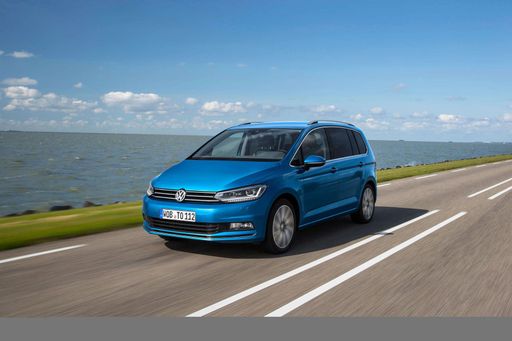 @ volkswagen-newsroom.com
@ volkswagen-newsroom.com
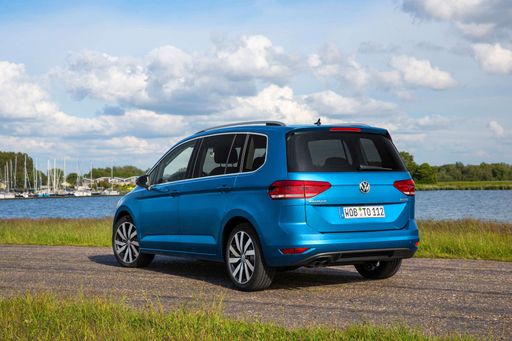 @ volkswagen-newsroom.com
@ volkswagen-newsroom.com
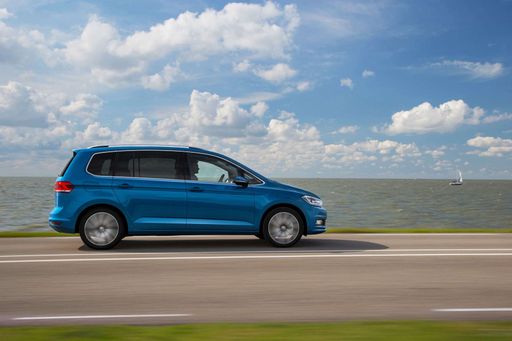 @ volkswagen-newsroom.com
@ volkswagen-newsroom.com
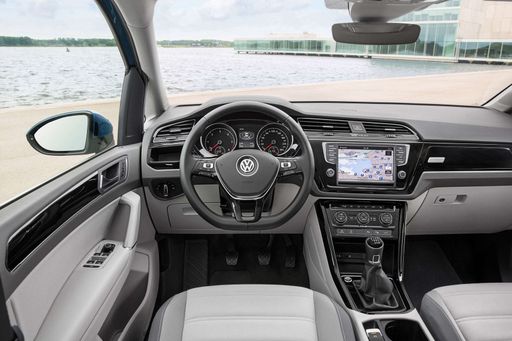 @ volkswagen-newsroom.com
@ volkswagen-newsroom.com
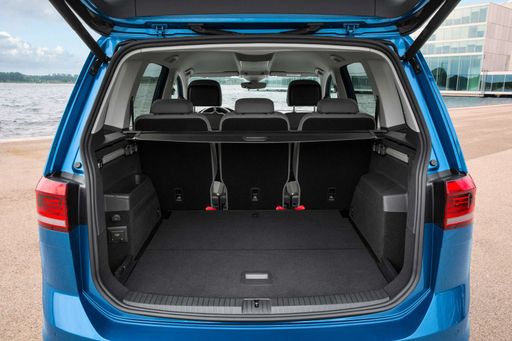 @ volkswagen-newsroom.com
@ volkswagen-newsroom.com
Dacia Bigster
El Dacia Bigster representa una propuesta interesante en el mundo de los SUV gracias a su enfoque práctico y robusto. Con un diseño exterior que refleja fortaleza, este modelo se plantea como una opción ideal para aquellas personas que buscan un vehículo resistente y adaptable para la familia. Además, la esencia de Dacia se mantiene al ofrecer un balance entre accesibilidad y características modernas, marcando una pauta significativa en su categoría.
detalles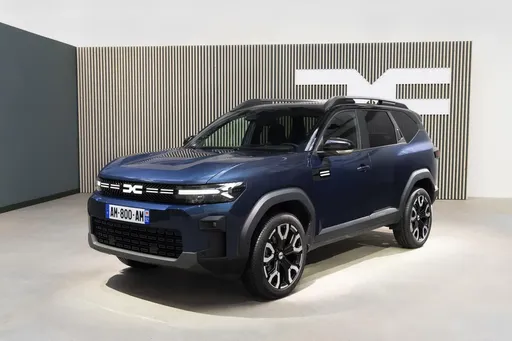 @ media.renault.at
@ media.renault.at
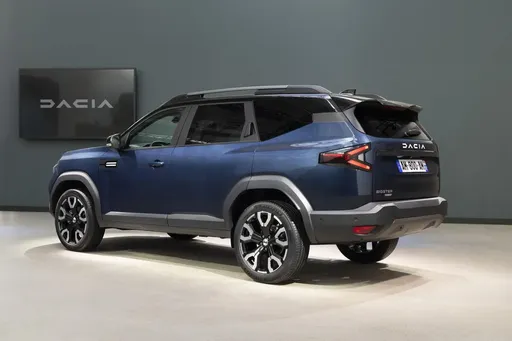 @ media.renault.at
@ media.renault.at
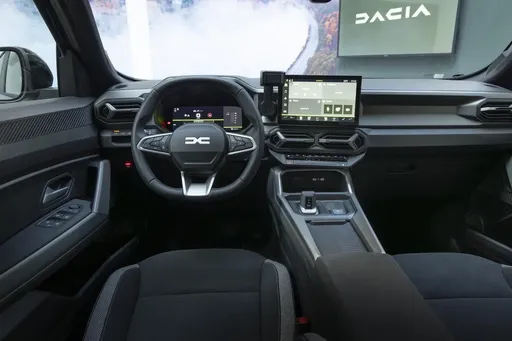 @ media.renault.at
@ media.renault.at
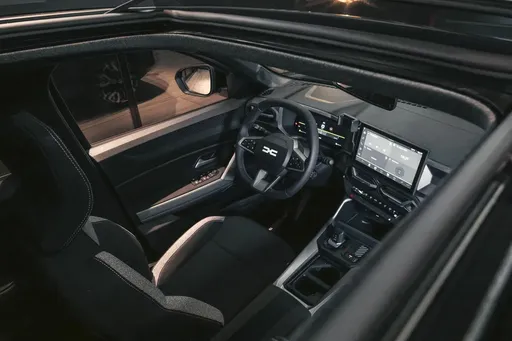 @ media.renault.at
@ media.renault.at
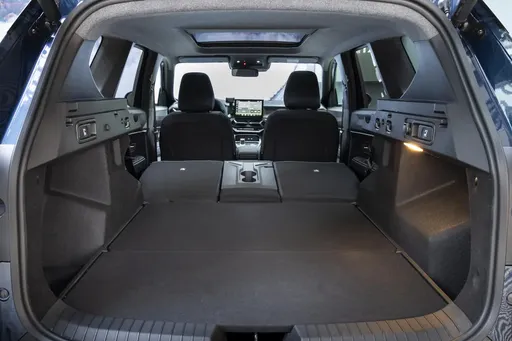 @ media.renault.at
@ media.renault.at

|

|
|
|
|
Costos y consumo |
|
|---|---|
|
Precio
44000 - 54500 €
|
Precio
24400 - 32900 €
|
|
Consumo L/100km
5.2 - 6.5 L
|
Consumo L/100km
4.7 - 7.1 L
|
|
Consumo kWh/100km
-
|
Consumo kWh/100km
-
|
|
Autonomía eléctrica
-
|
Autonomía eléctrica
-
|
|
Capacidad de la batería
-
|
Capacidad de la batería
-
|
|
co2
136 - 149 g/km
|
co2
106 - 137 g/km
|
|
Capacidad del tanque
58 L
|
Capacidad del tanque
50 - 55 L
|
Dimensiones y carrocería |
|
|---|---|
|
Tipo de carrocería
Monovolumen
|
Tipo de carrocería
SUV
|
|
Asientos
5
|
Asientos
5
|
|
Puertas
5
|
Puertas
5
|
|
Peso en vacío
1520 - 1631 kg
|
Peso en vacío
1425 - 1547 kg
|
|
Capacidad del maletero
834 L
|
Capacidad del maletero
510 - 667 L
|
|
Longitud
4527 mm
|
Longitud
4570 mm
|
|
Anchura
1829 mm
|
Anchura
1813 mm
|
|
Altura
1668 mm
|
Altura
1705 mm
|
|
Capacidad máxima del maletero
1980 L
|
Capacidad máxima del maletero
1813 - 1937 L
|
|
Capacidad de carga
590 - 601 kg
|
Capacidad de carga
383 - 467 kg
|
Motor y rendimiento |
|
|---|---|
|
Tipo de motor
Gasolina, Diésel
|
Tipo de motor
Híbrido ligero gasolina, Híbrido completo, GLP
|
|
Transmisión
Manuel, Automática
|
Transmisión
Manuel, Automática
|
|
Detalle de transmisión
Caja manual, Automático de doble embrague
|
Detalle de transmisión
Caja manual, Manual automatizado
|
|
Tipo de tracción
Tracción delantera
|
Tipo de tracción
Tracción total, Tracción delantera
|
|
Potencia HP
122 - 150 HP
|
Potencia HP
130 - 155 HP
|
|
Aceleración 0-100km/h
8.9 - 10.8 s
|
Aceleración 0-100km/h
9.7 - 11.2 s
|
|
Velocidad máxima
195 - 209 km/h
|
Velocidad máxima
180 km/h
|
|
Par motor
250 - 360 Nm
|
Par motor
230 Nm
|
|
Número de cilindros
4
|
Número de cilindros
3 - 4
|
|
Potencia kW
90 - 110 kW
|
Potencia kW
96 - 115 kW
|
|
Cilindrada
1498 - 1968 cm3
|
Cilindrada
1199 - 1799 cm3
|
General |
|
|---|---|
|
Año del modelo
2024 - 2025
|
Año del modelo
2025
|
|
Clase de eficiencia de CO2
E
|
Clase de eficiencia de CO2
E, D, C
|
|
Marca
VW
|
Marca
Dacia
|
¿Qué tipos de tracción están disponibles para el VW Touran?
El VW Touran se ofrece con Tracción delantera.
Los precios y datos mostrados son estimaciones basadas en los precios de lista en Alemania y pueden variar según el país. Esta información no es legalmente vinculante.
